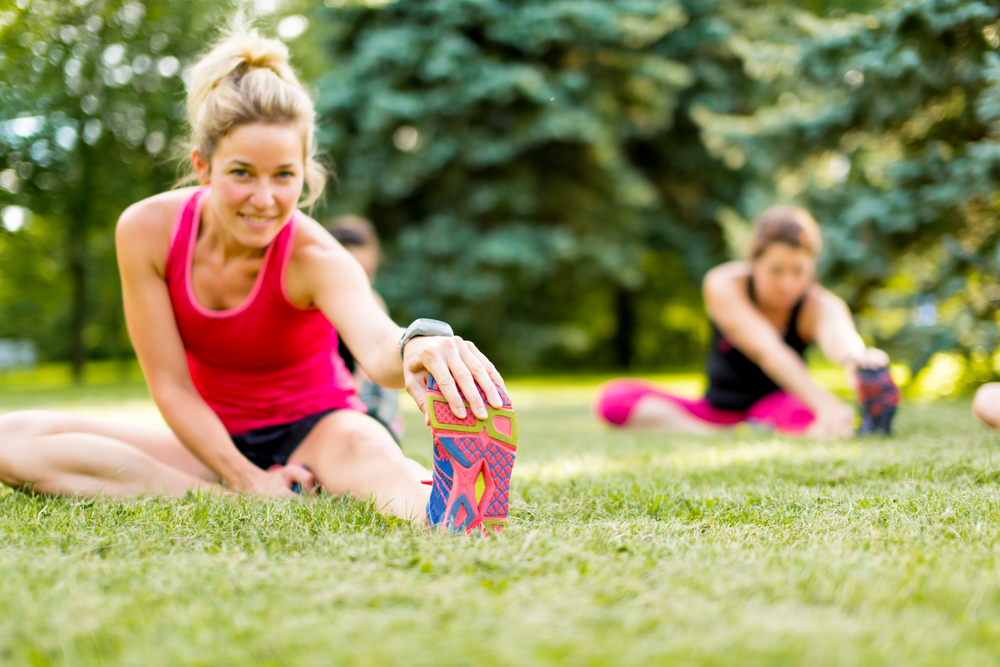
Month after month we raise awareness for a different kind of cancer. And it seems like we are frequently learning of a friend or loved one who has recently been diagnosed with cancer. Cancer seems to be everywhere and it is truly frightening. World Cancer Day is working to raise awareness and points out some alarming statistics, “Currently, 7.6 million people die from cancer worldwide every year, out of which, 4 million people die prematurely (aged 30 to 69 years). So unless urgent action is taken to raise awareness about the disease and to develop practical strategies to address cancer, by 2025, this is projected to increase to an alarming 6 million premature cancer deaths per year.” These startling numbers emphasize the importance of taking specific measures to reduce your cancer risk. Luckily, there are simple ways to make changes in your everyday life that will help significantly lower your risk of certain kinds of cancer.
1. Maintain A Healthy Weight
- Maintaining a healthy weight by choosing to eat a healthy diet and get regular exercise will help you reduce your risk of cancer. The CDC elaborates on how important maintaining a healthy weight is when trying to reduce your cancer risk, “Research has shown that being overweight or obese substantially raises a person’s risk of getting endometrial (uterine), breast, prostate, and colorectal cancers. Overweight is defined as a body mass index (BMI) of 25 to 29, and obesity is defined as a BMI of 30 or higher. Learn how to choose a healthy diet at Healthy Eating for a Healthy Weight, and read about exercise at Physical Activity for a Healthy Weight.”
2. Limit Prolonged Sun Exposure
- Short amounts of sun exposure provide a healthy dose of Vitamin D but long periods of sun exposure without sun protection significantly increase your risk of developing skin cancer. Avoid the sun during peak hours (10am – 4pm), opt to sit or play in a shady area, wear light layers of clothing that protect your skin from direct sun exposure, apply sunscreen, wear a hat with a wide brim and protective sunglasses.
3. Limit Alcohol Intake
- When it comes to alcohol, an occasional glass of wine or a cocktail at a celebration is is relatively innocuous, but if you want to limit your risk of cancer it is important to limit your alcohol intake as much as possible. WebMD discusses why it is important to restrict your alcohol intake, “When it comes to health, alcohol wields a double-edged sword. There is plenty of evidence to suggest that light alcohol consumption, especially red wine, may be beneficial for heart health. But on the other hand, it appears that any alcohol consumption can raise your risk of cancer. “For cancer, there is no safe level of alcohol,” Bender says. “It’s a dose response: The more you drink, the greater the risk, especially for certain cancers like those of the mouth, throat, and esophagus.” And if you smoke, too, the combined effects of drinking and smoking shoot your risk for these up even higher. What to do? Both the AICR expert report and the American Cancer Society recommend that women limit alcohol consumption to no more than one drink per day, and men no more than two.”
4. Eat a Healthy Diet Filled With Fruits and Vegetables
- A healthy, well-rounded diet can help you reduce your cancer risk significantly. Processed foods and sugar have been shown to have a link to cancer so it is important to stick to a plant-based diet with healthy, lean meats. Foods that fight cancer include apples, berries, cruciferous vegetables, cherries, coffee, cranberries, flaxseed, legumes, walnuts, dark leafy green vegetables, garlic, tomatoes, grapes, carrots, and many more.
5. Don’t Use Tobacco Products
- Tobacco products such as cigarettes are well-known to highly increase an individual’s risk of cancer. While they are highly addictive, it is important that every step be taken to quit smoking, regardless of if you have smoked for one month, one year, or 25 years. Mayo Clinic explains just how important it is to avoid tobacco products, “Using any type of tobacco puts you on a collision course with cancer. Smoking has been linked to various types of cancer — including cancer of the lung, mouth, throat, larynx, pancreas, bladder, cervix and kidney. Chewing tobacco has been linked to cancer of the oral cavity and pancreas. Even if you don’t use tobacco, exposure to secondhand smoke might increase your risk of lung cancer. Avoiding tobacco — or deciding to stop using it — is one of the most important health decisions you can make. It’s also an important part of cancer prevention. If you need help quitting tobacco, ask your doctor about stop-smoking products and other strategies for quitting.”

